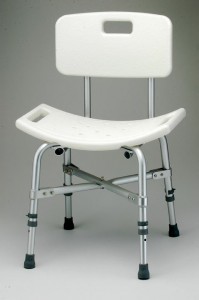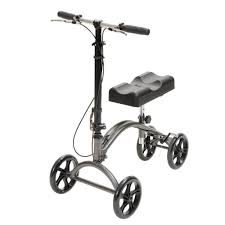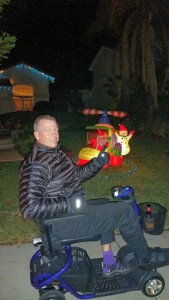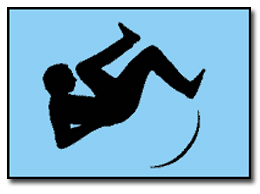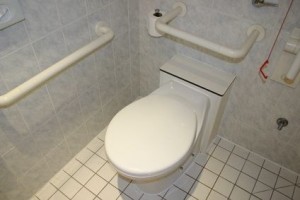We like to think that our bathrooms are safe and private places – places where accidents don’t generally happen. But it doesn’t take a lot for a bathroom to become a dangerous place for a frail or elderly senior. According to a recent study from the U.S. Centers for Disease Control and Prevention (CDC), nearly 200,000 Americans are treated in hospital emergency rooms, every year, for bathroom-related injuries. And since more than one in three persons over 65 fall each year, it’s safe to say that many of those who receive emergency treatment are elderly.
By and large, bathrooms have many hard and slippery surfaces, making them especially hazardous for individuals with mobility challenges, such as poor muscle strength or bad balance. But before one can make bathroom trouble spots safer for seniors, it’s important to know where and how bathroom accidents occur. Most bathroom falls occur while getting in and out of the tub or shower; sitting down and getting up from the toilet; and walking while attempting to use towel bars, sink tops, or other objects for support.
The first modification that can be made in a shower is getting rid of any lip that has to be stepped over getting in or out. If possible, a traditional shower stall can be replaced with a walk-in model. If that is not possible, or even if it is, grab bars should also be installed close to the shower opening to supply balance support. Another bar, or set of bars, should be installed in the shower, as well. A shower chair is an easy fix to supply stability as well as a place to rest for a senior who can’t stand for long periods. Another way to modify a shower for safety is to install a hand-held shower head with a long enough hose so that its user doesn’t have to stretch or bend.
Getting in and out of a bathtub can be very difficult for a frail senior. Here, again, well-placed grab bars can be helpful. For floor to tub transfers, a bath bench is another modification that can promote safety. Two of the bench’s legs are placed outside of the tub and the other two, within it. The user sits on the bench and swings his or her legs over the side, and then slides into the tub, without having to stand up. Of course, for both tubs and showers, non-slip mats are necessary inside, and non-slip rugs should be placed on the outside.
Toilets are another potential trouble spot, but there are several modifications that can be made. Raising the toilet seat several inches reduces the need to squat and the distance that has to be covered. Additional safety features include brackets or locking clamps that stabilize the seat on the toilet rim. Also, grab bars can be attached either to the wall near the toilet, or to the toilet, itself.
Of course, bathrooms should be well-lit, with towels, soap, and toiletries within easy reach. All surfaces, walls and floors, included, should be clean and free of any soap scum that makes them more slippery. Finally, the bathroom should be as free as possible of any fragile items or those that can fall and break.
At Pacific Mobility we provide all of the necessary safety items and equipment that can help make your bathroom safe for seniors. We can also help you make the best choices for any extensive bathroom modifications that you might wish to make. Call or visit us today.
President, Husband, Father, Grandfather Graduate of UC Davis- Bio Sci Major- Go Aggies! Jeff has extensive experience in all of Pacific Mobility’s products and services, and specializes in accessibility products as well as stairlifts, ceiling lifts and custom wheel chairs. His hobbies include spending time with family, gardening, mountain biking, exercising and off road motorcycle riding.
24 years as Owner/President of Pacific Mobility Center – selling, installing, and servicing stairlifts, porch lifts, ceiling lifts, pool lifts, handicap ramping, specialty wheelchairs, scooters, power wheel chairs, and other power mobility devices
Certified Environmental Access Consultant since 2008
Licensed General Contractor since 1998
Certified Aging in Place Specialist since 2016
Board Member for Home Access Professionals
Member of Association of Members of the Accessibility Equipment Industry (AEMA)
